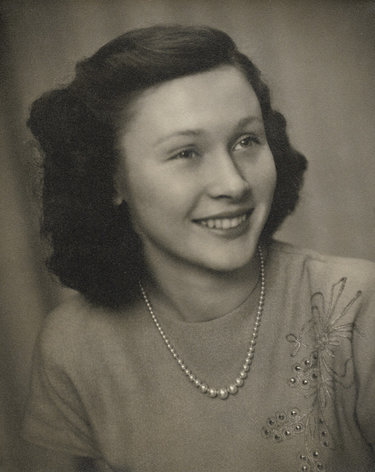Dorothy Kohler hits the century mark: She’s nobody’s fool
I thought it might be worthwhile for our readers to know that this past Saturday, Jan. 12, a 95th birthday party was held for beloved New Scotland citizen Dorothy Kohler at the social hall of the New Scotland Presbyterian Church.
More than 100 folks came from far and wide to celebrate their mother, grandmother, and dear friend, which included a fine luncheon, scintillating conversation, and a beautifully decorated cake. The ongoing esprit de corps was palpable.
Dorothy’s daughter, Wendy, said a few words about the close-knit family that Dorothy and her late husband, Lewis, fostered, calling attention to the retired nurse’s preference that Christmas presents be wrapped with the tightness of “hospital corners” on a bed.
The pastor of the church, Holly Cameron, also spoke, noting Dorothy’s long-time contribution to the vitality of the church community as an esteemed and valued elder.
On more than one occasion, attendees broke out into impromptu applause in honor of the fêtée.
Readers of The Enterprise know Dorothy from, among other places, an interview our editor, Melissa Hale-Spencer, conducted for the paper’s podcast when Dorothy’s book of memoir stories appeared in the summer of 2019. It is available online.
Dorothy has been part of the Voorheesville Public Library’s memoir-writing group since it began about a dozen years ago. As a colleague of hers in that group from the start, I felt compelled to say something about her work and offered the remarks that follow in honor of my friend and the friend of every writer in our group:
If I had to describe Dorothy Kohler in a word or two, I would say “simplicity of character.”
There is an uncomplicatedness to, or in, the woman that is disarming but be aware that she is always taking stock, quietly assessing the world that presents itself before her eyes — and that includes you and me. Thus, she’s nobody’s fool.
And as far as being a person of character, well, the person on the street might call it “having a backbone” a considerable part of which comes from the Christian faith Dorothy observes. She might reject hearing her name put in the same sentence with Mother Teresa but she might accept being referred to as Mother Teresa’s long-lost aunt from Gilboa, New York.
I have been in a memoir-writing group with Dorothy for a dozen years — a group I direct — we’ve met a zillion times. And I am never surprised to see, when report cards come out — and every one of our colleagues would agree — that Dorothy gets A-plusses across the board, in large part because her stories get to the heart of matters.
I think it is accurate to say that everyone in our group is involved in excavating and writing about his/her/their life and, in doing so, is a truth-teller, certainly at the very least a truth-seeker trying to set straight, for the world, “the record” by getting to the hearts of matters.
Being in such a group is most intimate in a certain way. That is, we all listen to the inner voice of each other, its quality and intonation as it reveals the dimensions of the person’s inner life. And, if I were asked to describe Dorothy’s voice I would say “dry martini,” no twist, no olives, no toothpicks, no frills at all.
Dorothy has written about her early life in Astoria, New York and then about the family moving up to Gilboa where a familial community existed that was a picturesque life on the German side of the Alps — a Teutonic blend of “Sound of Music” and “Little House on the Prairie.”
One of the tricks of the memoir-writing trade is telling one’s story about difficult situations and people with a distance so the tone is not accusatory, degrading, filled with anger or regret thereby allowing the reader, the listener, to enter the picture safely.
That’s why my favorite story of Dorothy’s “Our Family Menopause” brings forth joyous smiles from everybody, a story about her mother, Emma, who was struggling to find a way to deal with a change in her identity.
After someone reads a story during our sessions at the Voorheesville Library, the assembled are invited to make any comment they like; in every instance, after Dorothy reads, the jury says: “We want more!”
And this includes her telling of her journey from “the sticks” to the heart of the city of Albany to become a nurse, and later, when on the job, her efforts to give patients sponge baths from their feet up to the “possible” and from their head down to the “possible.” The “impossible” was out of bounds.
Her published book of stories “Stories of a Life: Remembering Friends and Family” is a treasure. Each reflects the simplicity of character I mentioned.
How happy I am that I have to come to know our friend a bit — and every writer in our group says the same thing: We are all richer for knowing her, being with her, listening to her wit and wisdom for maybe a 10th of her 95 years on earth.
That’s what a dry martini does for the soul.
Feliz cumpleaños, Dorotea. ¡Te deseamos que cumplas muchos años más!
